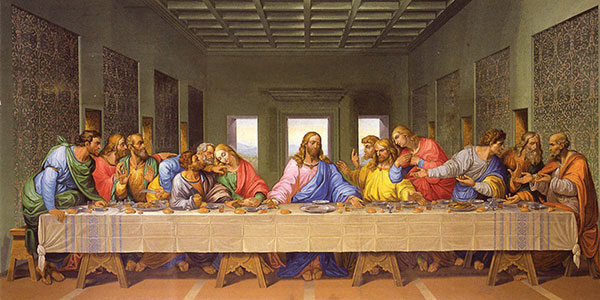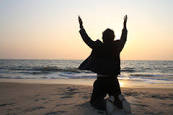The Lord Jesus alone chooses and qualifies the servants He needs in his home. the one who recommends himself is not approved of God.
God, being a God of order, establishes men in functions and services for the proper functioning of his work here on earth. Thus, in the Church, shepherds, deacons, elders,… are established for the development of the saints and the extension of the Universal Church. As their tasks and roles were not really perceived, doctrinal drifts were observed in the so-called Christian assemblies. There are two groups of servants in God’s house: shepherds and shepherds’ helpers.
I- Shepherd’s Ministries
These are functions that God has established in his house. These are calls for the edification of the body of Christ. There are generally five shepherd ministries (Ephesians 4:11). These five ministries are specific to shepherds. They are the drivers of God’s people. They are all full-time, that is, they do nothing but the work of God. All doctors, pastors, evangelists, prophets and apostles are equal and are used by the same Spirit. However, each is given a particularity and skill that distinguishes it. Given this particularity, there is an interdependence of these different departments.
1- The Prophet
He is the one to whom God entrusts, in general, his vision (direction, broad directions) for his people. He is the one with whom one comes to consult God. God reveals to him the thoughts of individuals and peoples. He receives an accurate knowledge of the present facts and announces the events to come. He is also an intercessor between God and his people. He is the confidant of God (Acts 21:10-11; 2 Chronicles 13:17-22; 2 Samuel 12:1-15; Numbers 12: 13). He must not establish himself in a temple, but rather visit the Lord’s congregations and go wherever God sends him.
2- The Pastor
He nurtures new souls and helps them through the various stages of Christian life until they reach maturity (disciples). Indeed, the pastor is the one who knows the specific needs of the sheep. He follows them daily by healing their various wounds (an evil), exhorting them to holiness and perseverance in faith (1 Peter 2:25; 1 Peter 5:2-3; Acts 20: 26-31). It is established in particular on a local church.
3- The Doctor
He watches over the doctrine of Christ in the assemblies and in the lives of other shepherds. He probes the Scriptures in prayer to teach true meaning. He controls the teachings given in all the churches of God. NB: The doctor’s ministry referred to here is a call that is different from the doctor of theology and academic title (Esdras 7: 6-10; Acts 13: 1; 1 Corinthians 12: 28).
4- The Evangelist
He’s a passionate soul-winner. He’s always looking for the lost sheep. Therefore, he is not static like the pastor. He is anxious to spread the good news all over the world (1 Timothy 4:5; Acts 21:8).
5- The Apostle
He’s a local church builder. He’s a homeless man. He ensures the unity and well-being of the body of Christ. It fully demonstrates the attributes of the other four departments. Despite this, it solicits other departments. He is preparing the abduction of the Universal Church (Title 1:1-2; Romans 1: 1-3; 2 Corinthians 11: 28-29). Note A woman can exercise all these five shepherd’s ministries. However, it should not be established on a local church, this is forbidden by the Word of God (1 Timothy 2:12). She exercises her ministry, in general, among women, pagans and new souls. In a local assembly (where there are Masked Christians), as Scripture says, women must not take authority over men. Depending on the need, the authority of the local church may allow it to intervene momentarily. God can give the pastor, the doctor, the evangelist and the prophet to fully manifest one or more ministries. This is not a personal evolution but it comes from God who makes thanks to whom He wants (Acts 13: 1-3).
II- The shepherds’ helpers
1- The elder (bishop)
The elder is a shepherd. He gets the old call. In principle, all those who are masted, who hold the doctrine, exercise the ministry of elders but it is those who are established who are called elders. The former is a supervisor, a full-time administrator (Title 1:5-9; 1 Timothy 3: 1-7).
N.B: A woman may be established as an elder (responsible for women) within the limits assigned to her by the Word of God (see previous remark).
2- The singer
The singer is a full-time servant. He is a shepherd who accompanies the shepherds in their ministry and is under their authority. It is therefore not autonomous. Through his singing, his poem, his hymn, his dance, his music,…, he inspires God’s people and leads them into worship. In addition, he must not seek personal interests and have commercial purposes in the manifestation of his ministry. The singer is neither a musician artist nor one who has a melodious voice but a called from God. The singer is not the one who sings only but all those who are called to this ministry and who constitute this group. These include instrumentalists and dancers,… (2 Chronicles 5: 12-14; 2 Chronicles 20: 21-22; 2 Kings 3: 15).
3- The Intercessor
In the old covenant, the intercessors were the priests and the prophets (shepherds). They stood between God and the people to plead for the people. They were sentries established on God’s people. They knew how to speak to God’s heart so that He would be favorable to them. They also carried God’s burdens relentlessly (Isaiah 62: 6-7; Exodus 32: 9-14; Jeremiah 6:17). Today, all the features that characterize intercessors in the old covenant are valid. All shepherds are intercessors. However, there is a full-time intercessor call. This one can be a shepherd or someone in the church. It is the same service that now extends to the service called ‘deliverance’. Note: All shepherds in the five universal ministries can fully exercise the ministries of singers and intercessors.
4 – the diaconate
The deacon is the one who today plays the role of Levite of yesteryear, that is, the help of the priests (Numbers 3:5-8; Numbers 4; Acts 6: 1-6). This function does not necessarily require a divine call, but it must be fulfilled certain conditions in order to be able to exercise it: to be full of the Holy Ghost, to be a man of mast, to be trustworthy, to have a good testimony,… He is appointed to this task by the priest or by the elder. This function generally concerns the usual and administrative tasks of the ministry (1 Timothy 3: 8-13). The deacon is not necessarily full-time.
Note: A woman can fully perform the function of diaconate in the local church (Romans 16:1).
Conclusion
This study shows that ministries are gifts that God bestows upon saints for the development of his Church. There is therefore no superiority of one department or service over another. There is no department gone, all are still relevant. Every worker must attach himself to his service and fill it faithfully. All these gifts in the service of the Church are intended to prepare for his abduction.





